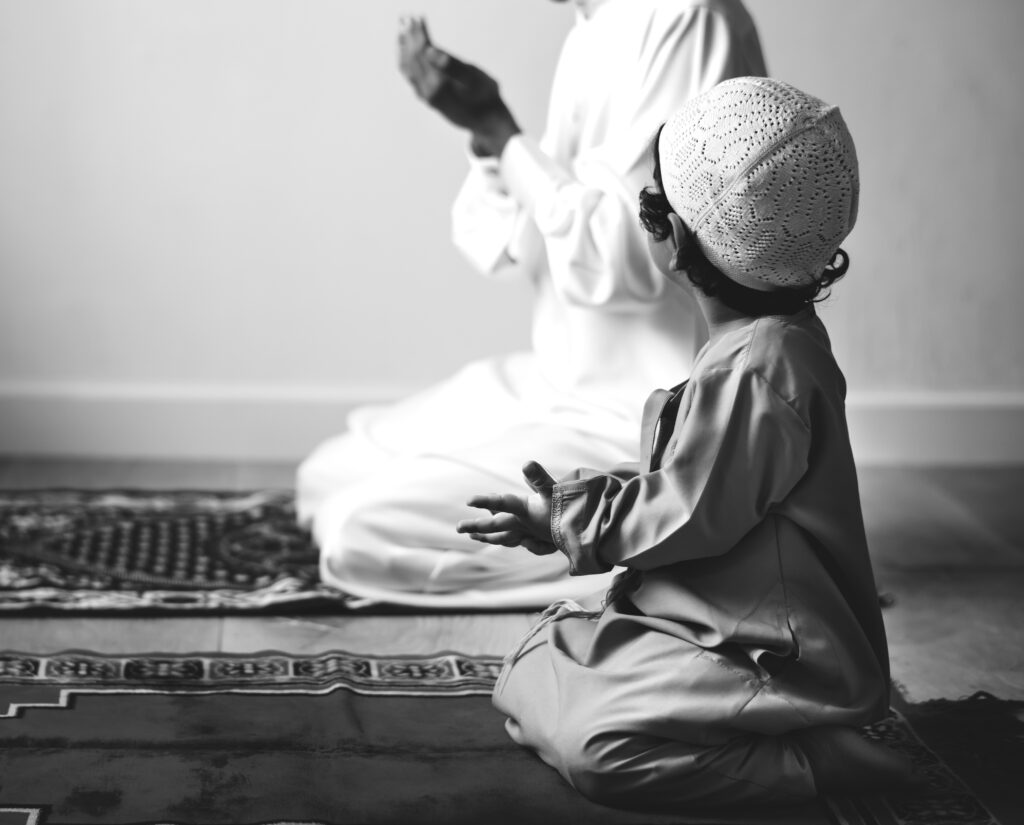Islamic Teachings and Sayings About Peace Islam is a religion of peace. The teachings in the Qur’an and Hadith emphasize peace and clarify that a Muslim’s duty is to establish peace in the world and avoid causing harm through words and actions. Peace in Islam is not only important at the individual level but also within society, politics, and globally. In this article, we will explore the importance of peace in Islam through its teachings, sayings, and historical examples.

The Importance of Peace in the Teachings of the Qur’an
The Qur’an emphasizes peace in numerous verses. Allah has clearly instructed Muslims to follow the path of peace and harmony. One of the most notable verses is:
“And if they incline to peace, then incline to it also and rely upon Allah. Indeed, it is He who is the Hearing, the Knowing.”
(Al-Anfal: 61)
This verse indicates that Allah commands Muslims to incline toward peace whenever others are willing to do so. It highlights that following the path of peace is pleasing to Allah.
The Importance of Peace in the Sayings of Prophet Muhammad (PBUH)
Prophet Muhammad (PBUH) consistently emphasized peace and good conduct. He stated:
“The best among you are those who are best in their conduct toward others, and the best among you are those who treat their wives well.”
(Tirmidhi)
This hadith teaches that peace begins at home. The Prophet (PBUH) encouraged his followers to establish peace in their homes by treating family members with kindness and respect. When there is peace in homes, peace in society becomes more attainable.
Another hadith states:
“A Muslim is one from whose hands and tongue other Muslims are safe.”
(Bukhari)
This hadith underscores that peace is not just about avoiding conflict but also about refraining from harming others, whether physically or verbally. Muslims are urged to act in ways that promote peace and avoid causing harm.
The Foundation of Peace in Islamic Society

In Islam, the foundation of peace lies in moral principles. While the Qur’an and Hadith emphasize peace, they also stress the importance of respecting others’ rights and practicing justice. Islam firmly opposes oppression and injustice, and it is critical to respect the rights of others. The Qur’an says:
“Indeed, Allah commands you to uphold justice and the best conduct.”
(An-Nisa: 58)
This verse points out that peace is rooted in justice and fairness. A Muslim is required to act justly in all matters and to treat others with kindness and respect.
The Purpose and Importance of Peace
In Islam, the purpose of peace is not only to avoid war or conflict but also to cultivate love, compassion, and brotherhood. A Muslim is expected to interact with others in a peaceful manner, respecting their rights and seeking to establish harmony. Islam rejects any form of oppression or injustice, and it emphasizes the importance of fulfilling the rights of others. Prophet Muhammad (PBUH) also stated:
“The most beloved of people to Allah are those who are the most beneficial to others.”
(Tirmidhi)
This hadith indicates that establishing peace among people is one of the most virtuous deeds in Islam. The principle of cooperation and mutual support is one of the core values of Islam.
Establishing Peace in the World

Islam seeks to establish peace not only at the individual level but also at the national and international levels. If all nations adopted the principles of peace outlined in Islam, we would see a reduction in war, violence, and discord. Instead, peace, love, and brotherhood would prevail. By following the peaceful teachings of Islam, the world could experience a more just and peaceful environment.
Historical Examples of Peace in Islamic History
Throughout Islamic history, there have been many instances where peace was maintained by following Islamic principles. One of the most significant examples is the Treaty of Hudaybiyyah. In this treaty, Prophet Muhammad (PBUH) took a peaceful approach towards the non-Muslims, establishing a framework for peace in the Arabian Peninsula. This treaty not only brought peace to the Muslims but also spread the message of peace across the region.
Another example from Islamic history is the leadership of Caliph Umar ibn al-Khattab (RA). During his caliphate, justice and respect for the rights of others were pivotal. He made efforts to ensure peace not only for Muslims but also for non-Muslims under his rule. Similarly, Caliph Ali ibn Abi Talib (RA) ruled with fairness and upheld justice and peace during his leadership.

Practical Ways to Promote Peace in Islamic Society
- Good Conduct and Ethical Behavior: Muslims should adopt good manners and ethical conduct in their daily lives. They should ensure that their words and actions do not harm others.
- Upholding Rights: Islam teaches that the rights of every individual must be respected. When people’s rights are violated, peace cannot be established.
- Mediation and Reconciliation: When conflicts arise, Muslims should seek peaceful solutions through dialogue rather than resorting to violence or hostility.
- Compassion and Empathy: Islam encourages showing empathy and helping others. By assisting those in need and showing kindness, we contribute to creating a peaceful society.
Prayers that Encourage the Desire for Peace
In Islam, there are various supplications and recitations that help promote peace and tranquility. One such prayer is:
“اللهم اجعلنا من اهل السلام”
(O Allah, make us people of peace.)
This prayer helps instill the desire for peace in a person’s heart and draws them closer to Allah. Through such prayers, individuals can feel inner peace and work towards establishing harmony with others.
The Impact of Islamic Teachings on the World
The principles of peace in Islam are not limited to Muslims alone but are a universal message for all of humanity. When Muslims adhere to these principles, not only do their own lives become peaceful, but their societies also benefit from peace and tranquility. By embracing Islamic teachings, the world can be a more peaceful and just place, fostering mutual love and cooperation among all people.
Conclusion
Islamic teachings on peace aim to enhance not only the individual’s life but also the welfare of all humanity. The Qur’an, Hadith, and the sayings of the Prophet Muhammad (PBUH) highlight the importance of peace, and Muslims are urged to promote peace through their words, actions, and interactions. The foundation of peace in Islam goes beyond avoiding conflict; it is about fostering love, compassion, and cooperation among people. The message of peace in Islam serves as a guiding light for humanity, encouraging harmony, brotherhood, and mutual respect.

Pingback: Funeral Prayer Its Importance and Significance in Islam
Pingback: Ramadan 2025: Fasting, Worship, and the Month of Blessings